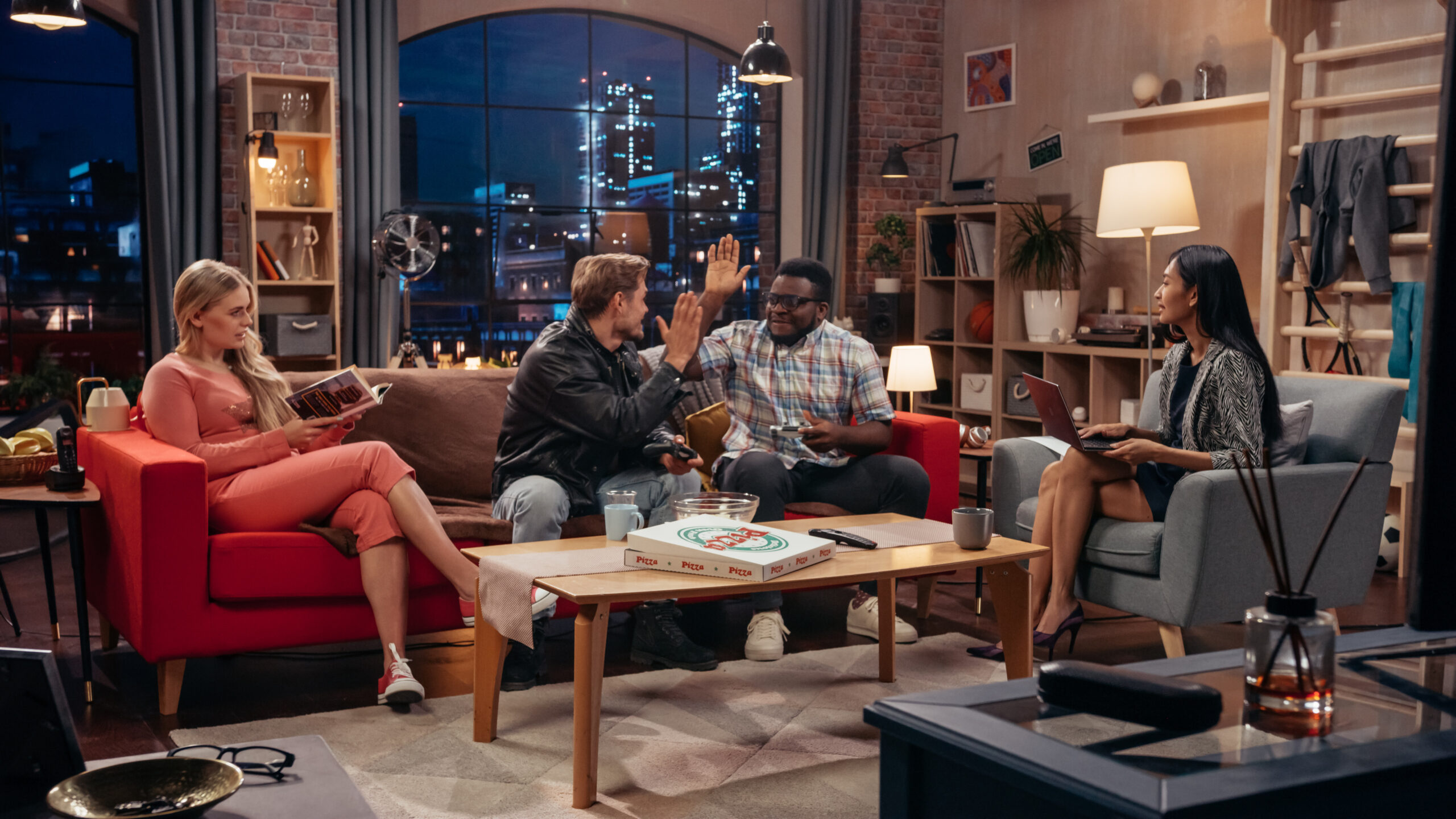Growing up in Oakland and then Los Angeles, I was surrounded by stories—some told on the streets, some on TV screens. From a young age, television was a big part of my life, and specifically, Black sitcoms played a huge role in shaping how I saw the world and myself. When I started my career, I was lucky enough to be part of that tradition, helping create shows that reflected our experiences in authentic, funny, and sometimes profound ways. Looking back, I can see how far Black sitcoms have come, and I’m excited about where they’re heading.
The Early Days: Breaking Ground
When I think about the roots of Black sitcoms, I remember the shows that broke barriers long before I got into the business. Shows like Good Times, Sanford and Son, and The Jeffersons weren’t just entertainment—they were cultural milestones. They brought Black families and stories into living rooms across America, often for the first time in a real way. These shows made people laugh, sure, but they also tackled real issues about race, class, and identity.
What those pioneers did was incredible, especially considering the limited opportunities and stereotypes that existed at the time. They paved the way for the next generations of creators and performers, and their influence is still felt today. Without them, I don’t think shows like Martin or The Jamie Foxx Show would have had the same impact.
The ’90s: A New Era of Voices
By the time the ’90s rolled around, Black sitcoms were evolving quickly. I was fortunate to be part of that wave with Martin and later The Jamie Foxx Show. The ’90s brought a new energy and flavor. These shows were unapologetically Black, funny, and fresh. They reflected the culture of the time—music, fashion, language—and didn’t shy away from being bold or irreverent.
The ’90s sitcoms also gave us characters who felt real and relatable, not just stereotypes. We laughed at their quirks and rooted for their successes. For many viewers, these shows were more than just entertainment—they were a reflection of their own lives and communities. Being a part of that was a huge honor and responsibility.
Expanding the Narrative: Beyond Comedy
Over time, the genre has continued to grow and diversify. Black sitcoms today aren’t just about laughs. They tell a wide range of stories—about family, friendship, love, struggle, and triumph. They explore different parts of the Black experience that weren’t always shown before.
For instance, when I created Love That Girl! and later worked on Family Time and other Bounce TV shows, I wanted to bring new perspectives to the screen. These shows highlight everyday moments and relationships with heart and humor. They celebrate the joy and complexity of Black life without relying solely on old tropes.
It’s exciting to see how Black sitcoms have become more inclusive in terms of themes and characters. There’s room now for stories about different ages, backgrounds, and walks of life. This evolution keeps the genre fresh and relevant for new audiences.
Streaming and the Future of Black Sitcoms
One of the biggest changes in recent years has been the rise of streaming platforms. Shows like Dad Stop Embarrassing Me! on Netflix and Partners in Rhyme on ALLBLK have opened up new opportunities for Black creators and stories. Streaming has given us more control over how we tell stories, who we cast, and how we reach audiences.
This shift has been a game-changer. It allows for more experimentation and risk-taking, which can lead to really original and diverse content. We’re no longer limited by traditional network constraints, and that freedom is refreshing. It also means that Black sitcoms can reach audiences all over the world, sharing our culture far beyond what was possible before.
The Importance of Representation
Throughout all this change, one thing remains clear: representation matters. Black sitcoms give us the chance to see ourselves reflected on screen—not just as background characters, but as fully realized people with stories worth telling. That representation influences how young people see their own potential and how society understands Black culture.
That’s why I’ve always tried to create shows that showcase Black talent both in front of and behind the camera. It’s about opening doors and making space for new voices. When we control the narrative, we can present authentic stories that resonate deeply with audiences.
Challenges and Opportunities Ahead
Of course, the journey hasn’t been without challenges. The entertainment industry has its obstacles, and Black creators still have to fight for opportunities and respect. But the progress we’ve made is undeniable, and there’s a new generation of talented writers, producers, and actors ready to carry the torch.
What excites me most is the blending of tradition with innovation. We’re honoring the legacy of those who came before us while pushing the genre forward with fresh ideas. Black sitcoms will continue to evolve, reflecting the changing world and the vibrant diversity within Black communities.
A Personal Reflection
For me, being part of the evolution of Black sitcoms has been one of the greatest joys of my career. From acting in House Party to running shows like Martin and creating new series for platforms like Bounce TV and Netflix, I’ve witnessed firsthand how storytelling can unite, empower, and entertain.
I’m proud of the role I’ve played and grateful to continue working with amazing talent who share the same passion. As we look to the future, I’m hopeful that Black sitcoms will keep breaking new ground and telling stories that matter—stories that make people laugh, think, and feel connected.
